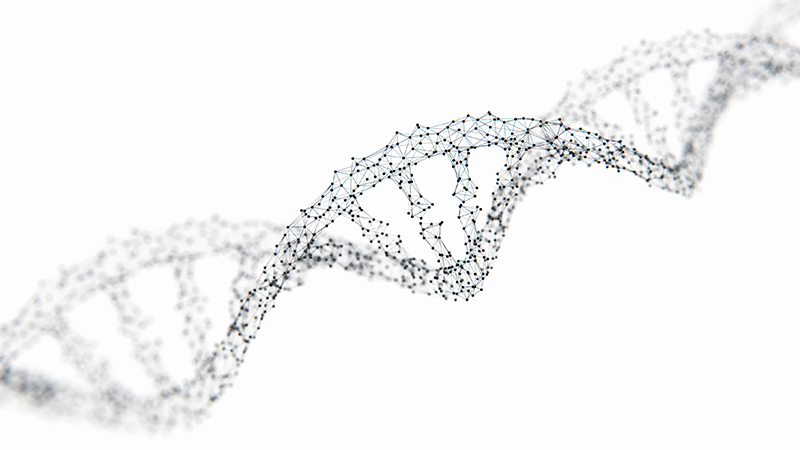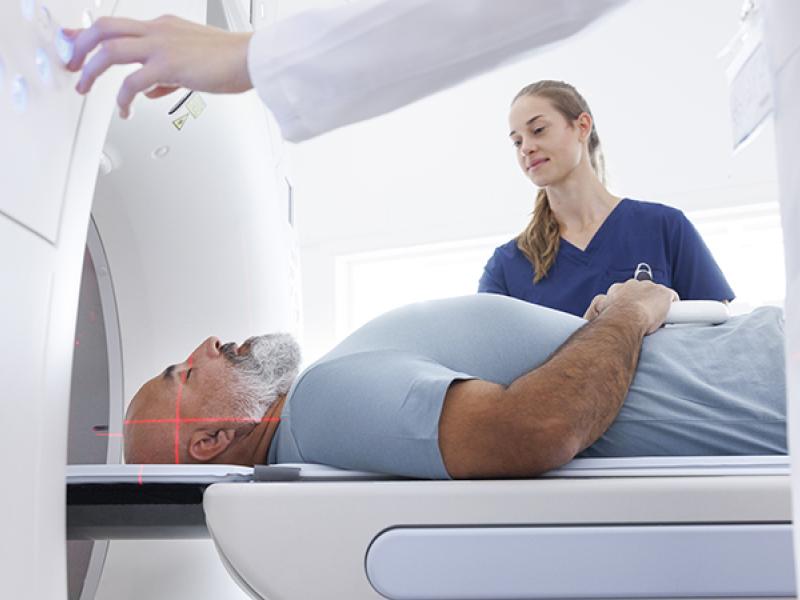
The National Aeronautic and Space Administration (NASA) has awarded a team of University of Missouri investigators led by Donald Burke-Aguero, PhD, a researcher at the University of Missouri School of Medicine, a $5-million grant to study molecular structures possibly linked to the origin of life on earth.

The “RNA World Hypothesis” speculates that billions of years before dinosaurs, chains of genetic-carrying molecules called RNA were critically important for the events that first started life on earth. Burke-Aguero’s aim is to discover if chains of RNA that fold in on themselves, called ribozymes, can sustain metabolic reactions in a way that supports life.
“Past research has done an amazing job of establishing that RNA molecules can fold into 3D structures that can hold onto small molecules and that those structures can position the small molecules to undergo chemical transformations,” Burke-Aguero said. “The problem is that the RNA molecules were never especially good at carrying out their many functions, they could usually only do their reactions once, and the way that my colleagues and I were doing the experiments in the past was not very representative of biology.”
Burke-Aguero and his team will develop several new techniques to evolve ribozymes in a laboratory and then identify variations capable of performing their reactions over and over, quickly and efficiently.
“My goal is to have a collection of new ribozymes that work much better than previous varieties, capable of multiple turnover and a greatly improved discovery platform that will accelerate the field and significantly expand our understanding of the versatility of RNA,” Burke-Aguero said.
By understanding the molecular engineering design principals of RNA, Burke-Aguero sees potential for new discoveries that not only explain the past, but also could help humans in the future.
“It’s just as much about enabling technology as it is an effort to study and understand things in hand,” Burke-Aguero said. “This research has the potential to speed discoveries in fields like biomedicine and biofuels.”
The NASA grant is part of the Interdisciplinary Consortium in Astrobiology Research (ICAR) Program supporting research that leads to a better understanding of how life emerged and evolved on Earth. The award is for $5 million over five years and involves 12 investigators at eight institutions, with MU as the lead institution.
In addition to serving in the Department of Molecular Microbiology and Immunology at the MU School of Medicine, Burke-Aguero is also affiliated with the departments of biochemistry and bioengineering at the MU College of Agriculture, Food and Natural Resources. His lab is located in the Christopher S. Bond Life Sciences Center where he is a principal investigator.
“It’s hard to build new things,” Burke-Aguero said. “Life is a marvelous and humbling thing, and for us to get a little bit better at understanding it will be a major accomplishment.”





